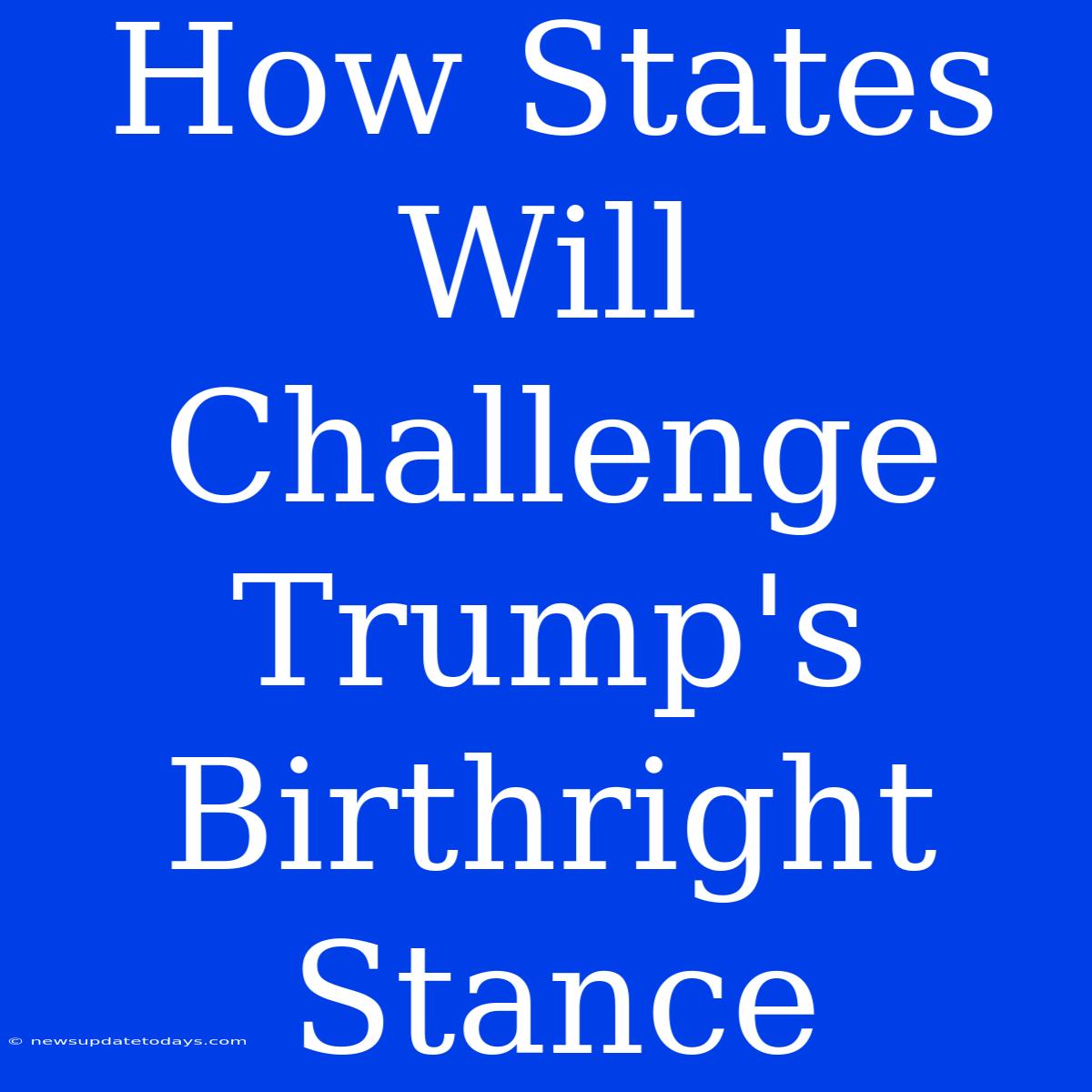How States Could Challenge Trump's Anti-Birthright Citizenship Stance
The fight over birthright citizenship, a cornerstone of American law, is heating up. President Trump's repeated attempts to overturn the 14th Amendment's citizenship clause have ignited a legal and political firestorm, setting the stage for potential state-level challenges and a major constitutional showdown. This article explores how states might challenge Trump's stance and the legal complexities involved.
Understanding the 14th Amendment and Trump's Claims
The 14th Amendment, ratified in 1868, states: "All persons born or naturalized in the United States and subject to its jurisdiction, are citizens of the United States and of the State wherein they reside." Trump, however, has argued that this clause doesn't apply to children born to undocumented immigrants, effectively seeking to redefine "subject to its jurisdiction."
This interpretation directly contradicts decades of legal precedent affirming birthright citizenship. The Supreme Court has consistently upheld the broad scope of the 14th Amendment's citizenship clause, leaving little room for Trump's narrow interpretation.
Potential State-Level Challenges: A Multi-pronged Approach
While a direct federal challenge might be difficult, states could employ several strategies to counter Trump's position and protect birthright citizenship:
1. Legal Action Challenging Executive Orders: If the Trump administration attempts to implement policies restricting birthright citizenship through executive orders, states could file lawsuits arguing those orders are unconstitutional and exceed the President's authority. These lawsuits could argue the executive orders violate the established interpretation of the 14th Amendment and the separation of powers.
2. State-Level Legislation Affirming Birthright Citizenship: States could pass resolutions or laws explicitly affirming their commitment to birthright citizenship as guaranteed by the 14th Amendment. While this wouldn't directly challenge Trump's stance in court, it would serve as a powerful political statement and potentially influence public opinion.
3. Amicus Curiae Briefs in Related Cases: States could file amicus curiae (friend of the court) briefs in any federal cases challenging birthright citizenship. This allows states to present their legal arguments and solidify the opposition to Trump's position, strengthening the case against his interpretation.
4. Funding Legal Challenges: States could allocate resources to support legal organizations actively challenging Trump's position on birthright citizenship. This financial backing would be crucial in ensuring robust legal representation against the significant resources likely deployed by the opposing side.
The Legal Landscape: Difficulties and Probabilities
While state-level challenges offer a pathway to contest Trump's stance, significant legal hurdles exist:
- Supreme Court Precedent: Overturning established Supreme Court precedent is an uphill battle. Any challenge would need to present compelling arguments to justify a departure from long-standing legal interpretations.
- Political Polarization: The highly polarized political climate may hinder the effectiveness of legal challenges, even if they are legally sound.
- Federal Supremacy: The federal government's authority in immigration matters could limit the effectiveness of state-level actions.
Despite these challenges, the potential for state-level legal action against Trump’s anti-birthright citizenship stance is real. The outcome will likely depend on the specific legal strategies employed, the political climate, and ultimately, the decisions of the courts. This battle over a fundamental aspect of American citizenship is far from over. The coming years will likely witness significant legal battles shaping the future of birthright citizenship in the United States.

